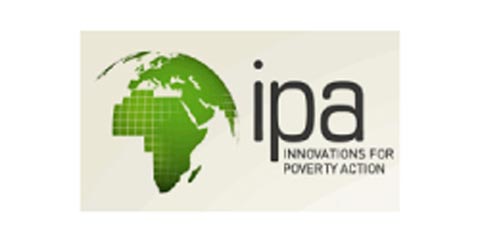Bolstering demand for improved sanitation when adoption decisions across households are inter-linked
2010 - 2015 • Innovations for Poverty Action, IPA
Purpose
To provide clear actionable evidence for policymakers on how to increase the adoption of improved sanitary practices and technologies.
Activities
The purpose of the project is to provide clear actionable evidence for policymakers on how to increase the adoption of improved sanitary practices and technologies.
Documents available for download in the library:
1 - Encouraging Sanitation Investment in the Developing World: A Cluster-Randomized Trial, Supplementary Materials by Raymond Guiteras (University of Maryland), James Levinsohn (Yale University), Mushfiq Mobarak (Yale University) - April 10, 2015
The Latrine Promotion Program (LPP) was a multi-day, neighborhood-level exercise designed
to raise awareness about the problems caused by open defecation (OD) and nonhygienic
latrines, and to motivate the community to reduce open defecation and increase
coverage of hygienic latrines. The primary activities are similar to those of Community-Led
Total Sanitation (CLTS), which was developed by VERC in Bangladesh and subsequently
implemented in many countries in Asia and Africa. CLTS programs inform households about
the health threats associated with open defecation (OD) and the economic benefits associated
with latrine investments, attempt to make the health and disease transmission risks
more salient through demonstration, and encourage all members of the community to make
a joint commitment to invest and become open defecation free
#BDS
Countries of activity
Location of main activity
Further information
Project update in Nov 2017:
Raymond Guiteras presented on a randomized control trial
(RCT) study in North West Bangladesh with two streams
of treatments: rewards (monetary and non-monetary) and
commitment pledges to install and use a hygienic latrine.
The commitments could either be made publicly, at a village
gathering, or privately, made by the household directly to the
facilitator without others witnessing it. The findings showed
that for the reward treatment, monetary reward (USD 3.5-
7) was the most successful; for the commitment, the public
commitment was moderately successful, the private pledge had
little effect. There were also some positive externalities i.e. if
your peers received subsidies you were more likely to receive a
subsidy
Filter tags
Behaviour change Bill & Melinda Gates Foundation Political processes and institutional aspects Rural Rural areas Specific to one or several countries University, education or research institution
Links

Uploaded by:
danijela milosevic (milli)















